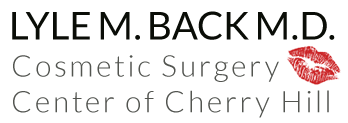Frequently Asked Questions
To reserve an actual date for your cosmetic surgery, we will require a scheduling/booking fee. Reserving a date is the only way we can guarantee you the date you have chosen. The final balance of payment is due on or prior to the date of your preoperative visit (which is typically 3 to 4 weeks before your actual surgery date).
Yes, it may be possible to do but it is not always advisable to do. Dr. Back believes that the best and safest outcomes are most often realized by limiting the risks and simplifying the recovery process. Staying within reasonable limits of time in the operating room, and avoiding combinations of procedures that unnecessarily raise risk levels also helps lead to a streamlined and easy recovery. Getting a great result with a safe, uneventful and quick recovery is more important than “getting it all done at once”.
- Eating and drinking
- Smoking (i.e., STOP!)
- Taking or avoiding certain vitamins and medications
For most cosmetic surgical procedures, there will be minimal activity restrictions for 2 to 4 weeks following surgery, but good results and avoiding complications depends upon following them carefully. Dr. Back and our staff will explain the specific restrictions for your procedure, but the procedure descriptions on this website should provide a general idea of what to expect. It takes time for the visible signs of healing to subside. Plan your work and social activities to allow sufficient time for recovery.
The goal of reconstructive surgery is to correct defects (as in breast reconstruction after cancer surgery) and to restore form or function to a part of the face or body which is considered to be outside the range of normal. Cosmetic surgery procedures are designed to enhance a part of the face or body which is actually within the range of normal, but there is a personal desire to improve upon it in some way.
- Gary M. Brownstein, M.D.
- William C. Franckle, M.D.
- John Gatti, M.D.
- Evan S. Sorokin, M.D.
- Bhupesh Vasisht, M.D.

